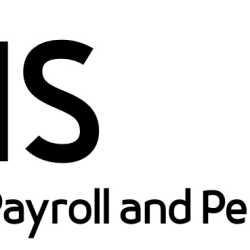The Integrated Payroll and Personnel Information System (IPPIS) is a significant reform initiative in Nigeria’s civil service designed to manage the payment of salaries and pensions of government workers. It aims to ensure efficiency and transparency in salary and pension administration. A key component of this system is the management of pension contributions, which includes both employee deductions and the government’s counterpart contribution.
What is IPPIS?
IPPIS is an automated payroll system designed to capture, manage, and pay government employees’ salaries while ensuring transparency. One of its major functions is the deduction and remittance of pension contributions for federal employees.

By centralizing payroll operations, IPPIS reduces payroll fraud and ensures that pensions are accurately processed for federal government employees.
Pension Contribution in Nigeria
Under Nigeria’s pension system, which follows a Contributory Pension Scheme (CPS), both the employee and the employer contribute to the pension fund. This scheme ensures that upon retirement, employees receive a steady income.
The Role of Pension Fund Administrators (PFA)
Pension Fund Administrators (PFAs) are responsible for managing the contributions made to employees’ Retirement Savings Accounts (RSAs). They ensure that funds deducted from salaries, as well as the government’s counterpart contributions, are invested and managed according to regulatory guidelines.
Breakdown of Pension Contribution under IPPIS
Employee Pension Contribution Deduction:
IPPIS ensures that employee pension contributions are deducted directly from their salaries. Typically, 8% of an employee’s monthly salary is automatically deducted. This is part of the employee’s mandatory contribution under the pension scheme. This deduction is seamlessly integrated into the payroll processing system of IPPIS.
Applicable Pension Rates for Employees
Current Rates and How They Are Calculated:
The National Pension Commission (PenCom) sets the rates for pension contributions under Nigeria’s contributory scheme. The employee is expected to contribute 8% of their monthly salary, while the employer (in this case, the government) contributes 10%. Together, this makes a total of 18% of an employee’s gross salary being channeled into their Retirement Savings Account (RSA).

Remittance of Pension Contributions under IPPIS
Process of Pension Remittance by IPPIS:
Once the pension contributions are deducted from an employee’s salary, IPPIS ensures the remittance of both the employee and the government’s contributions. These contributions are sent directly to the employee’s Pension Fund Administrator (PFA). This process is automated, ensuring that remittance happens promptly after salary payments are made.
Role of the Budget Office of the Federation
How the Government’s Contribution is Released:
The government’s contribution to employee pensions comes from the Budget Office of the Federation. This office coordinates with IPPIS to release the employer’s contribution (which is 10%) through budgetary allocations. Once the budget is approved, funds are disbursed, and IPPIS facilitates the remittance to the employees’ Retirement Savings Accounts (RSAs) via their PFAs.
Employer (Government) Counterpart Contribution
How the Government Adds Its Counterpart Contribution:
In the pension contribution process, the government’s role as an employer is to contribute an additional 10% of the employee’s monthly salary. This is handled simultaneously with the employee’s contribution. Through IPPIS, the government’s counterpart contribution is credited to the employee’s RSA, managed by the PFA, at the same time the employee’s own contribution is deducted.
Timing of Pension Deductions and Remittance
Synchronizing Deductions and Remittance in the IPPIS System:
The IPPIS system ensures that both the deductions from an employee’s salary and the government’s contribution are processed in a timely manner. Typically, pension contributions are deducted monthly, immediately after salary payment. Remittance to the PFAs follows soon after, ensuring that employees’ RSAs are credited promptly.
Ensuring Accuracy in Pension Contributions
Avoiding Errors in Employee Deductions and Government Remittance:
To prevent errors in pension deductions, IPPIS uses an automated system that verifies salary and contribution data. However, errors can occur, such as incorrect deductions or delays in remittance. Employees are encouraged to regularly monitor their RSAs to ensure contributions are accurately credited.
How Employees Can Monitor Their Pension Contributions
Accessing Your Pension Records through Your PFA:
Employees can monitor their pension contributions by logging into their PFA’s portal, where they can view their RSA balance, contributions, and investment returns. It is crucial for employees to regularly check these details to ensure that their contributions are being remitted correctly.
Role of Pension Fund Administrators (PFAs) in Contribution Management
Ensuring Accurate Credit to Employee Retirement Savings Account (RSA):
PFAs play an essential role in managing and investing the pension contributions. Once the remittance is made by IPPIS, the PFA credits the employee’s RSA with the total contribution (both employee and government shares). PFAs are regulated by PenCom to ensure the safety and growth of pension funds.
Challenges in the IPPIS Pension Deduction System
Common Issues and Solutions:
While IPPIS has streamlined pension contribution processing, challenges such as delays in government contributions, errors in deductions, or discrepancies in credited amounts may arise. In such cases, employees are advised to contact their PFA for assistance. Most PFAs offer resolution channels for such issues.
Recent Developments and Updates on IPPIS Pension Contributions
Enhancements to the System for Accuracy and Timeliness:
Over time, IPPIS has undergone updates to improve its accuracy and efficiency. These enhancements include better integration with PFAs and real-time updates on remittances. Such developments are aimed at reducing delays and ensuring contributions are processed without errors.
FAQs on IPPIS Pension Contributions
How Can I Confirm if My Pension Contribution is Remitted?
You can confirm if your pension contributions have been remitted by checking your RSA balance through your PFA. They typically provide statements or online access for employees to monitor their accounts.
What Happens if There’s a Delay in Remittance?
If there is a delay in remittance, it could be due to budgetary constraints or administrative errors. Employees should contact their PFA or their employer’s HR department














